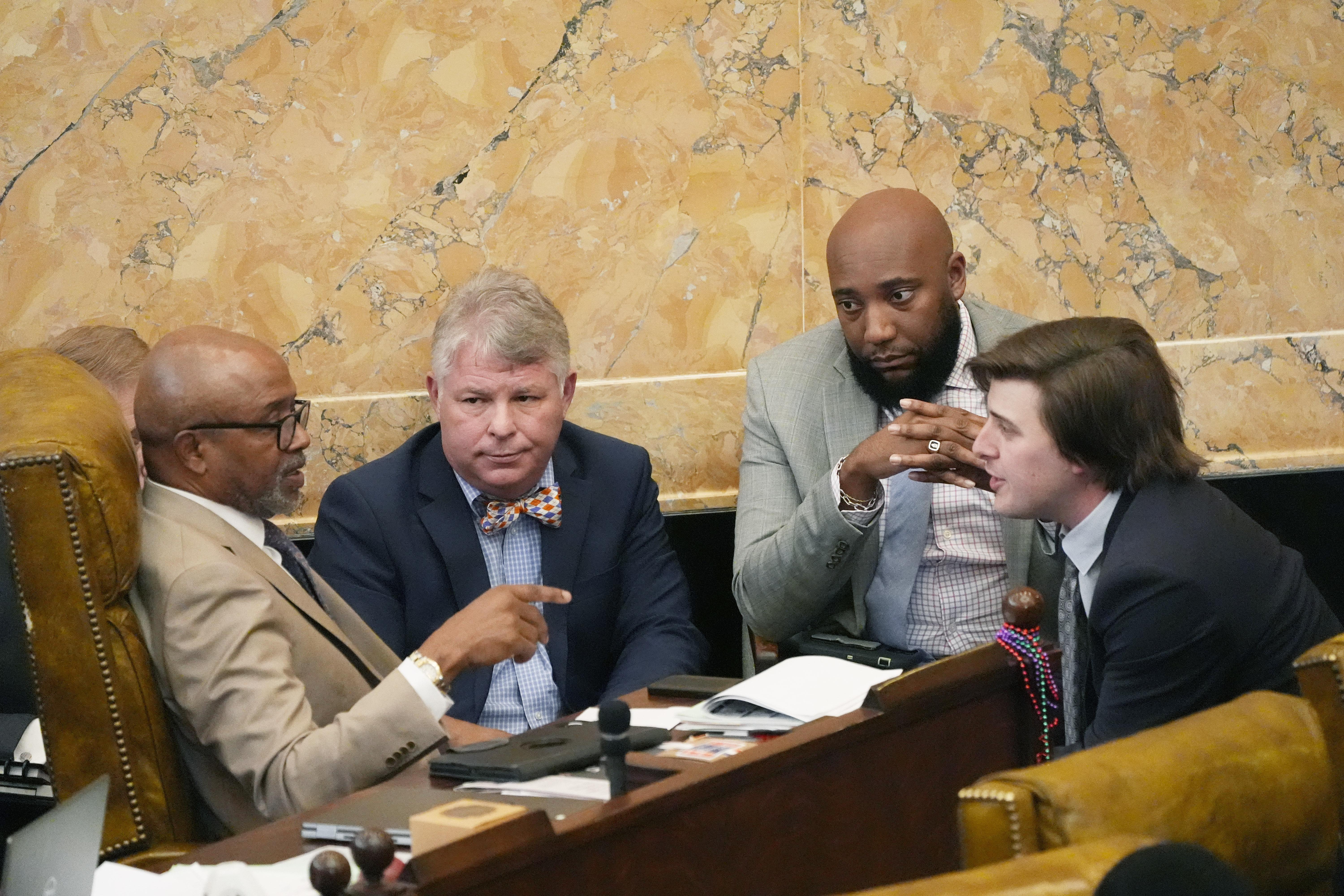The Mississippi House’s Education Committee has advanced a bill that would allow state education funding to flow to private schools.
House Education Committee advances school choice bill


The Mississippi House’s Education Committee has advanced a bill that would allow state education funding to flow to private schools.

Will Stribling
House Education Committee advances school choice bill
Throughout Tuesday’s committee meeting, House Education Chair, Rep. Rob Roberson, R-Starkville, acknowledged that his “school choice” bill will have to go through major revisions for it to pass in either chamber. But facing a legislative deadline, Roberson said the bill needed to make it through committee to further discussions about how lawmakers can help students stuck in low-performing schools.
“Frankly, the purpose of this is for us to continue having a conversation about how we help the poorest of our poor,” Roberon said. “That’s where I am on this. I do realize that you all are getting a lot of pressure to push back on this, but we’ve got to keep talking about these things. Even if it makes you uncomfortable, even if you’re getting a million phone calls, these kids deserve to have us talking about this.”
Only students enrolled in a district that has received a D or F accountability score in the past five years would be eligible for the program. Those students could take the state portion of their per-pupil education funding and put it towards private school expenses, but only if there is not an A-rated or B-rated school within 30 miles of their home that will allow them to transfer there.
Roberson advanced the bill through a voice vote and denied Democrats’ request for a roll call so each member's vote would be on-record. The move came after a half hour of Democrats raising a litany of issues they have with the bill.
Rep. Jeffery Harness, D-Fayette, lamented the absence of accountability standards for private schools receiving taxpayer money under the program. He said that omission is particularly egregious given the focus on raising accountability standards for schools following the rewrite of Mississippi's student funding formula.
“So they just get a free ride, basically,” Harness said. … “The private schools won't have to do anything to measure or assess the student progress.”
The legislation provides a $5 million appropriation for the program’s first year to reimburse parents for private school expenses. Students living in households earning up to 138% of the federal poverty level would be prioritized, and the rest would be disbursed on a first come first serve basis.
Per-pupil funding for each participating child would be placed in an education savings account. There is widespread disagreement about the constitutionality of these accounts due to the state constitution’s prohibition of appropriating state funds to “any school that at the time of receiving such appropriation is not conducted as a free school.”
ESA proponents argue that these accounts circumvent that issue because it’s the child's parents who have access to those funds, not the private school. Lawmakers and public education advocacy groups opposed to school choice aren’t buying that argument.
“Just because it is being passed through the parents’ hands before it goes to the private school, doesn’t make the action any less unconstitutional, in our opinion,” Erica Jones, Executive Director of the Mississippi Association of Educators, said in a statement.
House Democrats also raised equity issues not addressed in the bill, like how losing state funding would make it harder for low-rated schools to improve their performance. Rep. Cheikh Taylor, D-Starkville, cited the need for parents to provide transportation if they want their child to attend a private school as evidence the bill would further educational gaps between children in well-off and poor families. Roberson said that inequality already exists in Mississippi.
“We already have a dual system, and frankly, it comes down to the rich people can take their kid anywhere they want to,” Roberson said. “The poor kids, whether transportation's attached or not, end up going to what's left over.”
The bill now heads to the full House for a vote.